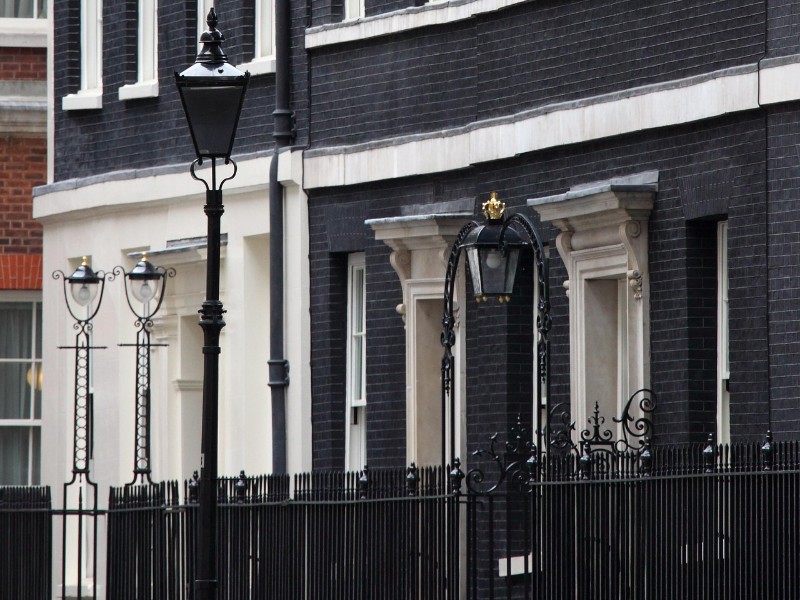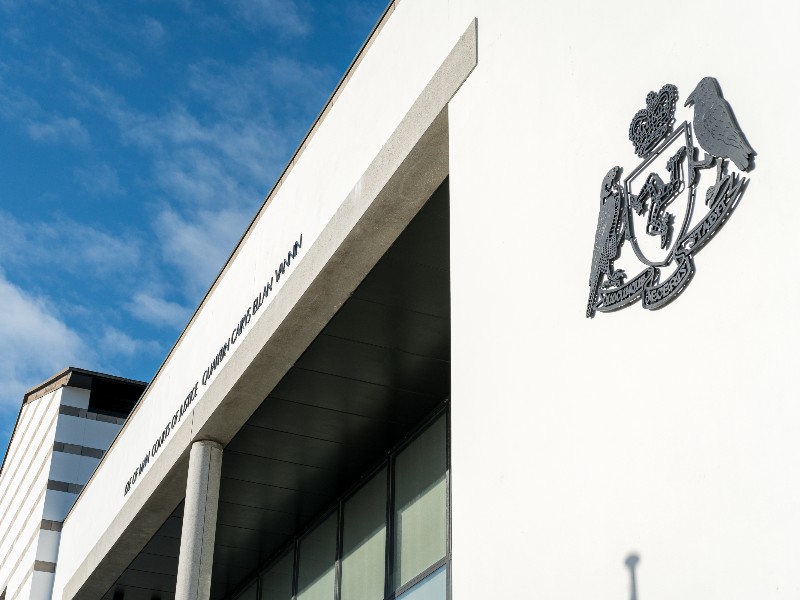
A look at which Westminster measures apply automatically, which may be mirrored, and what they mean for the Island’s economy
The UK’s Autumn Budget sets tax and spending policy for England, Scotland, Wales and Northern Ireland - but many of its decisions ripple across the Irish Sea.
For the Isle of Man, several measures will apply directly through the Island’s shared customs and excise system with the UK, while others may influence future decisions by Tynwald or affect the Manx economy indirectly.
The Office for Budget Responsibility’s (OBR) latest forecasts show the UK economy will grow by 1.5 percent - upgraded by half a percentage point from March - higher unemployment and inflation falling back towards the Bank of England’s target next year.
These trends matter because they shape consumer spending and interest rate expectations, which in turn influence VAT receipts paid into the shared “Common Purse”.
VAT
VAT remains unchanged in the UK Budget, meaning the Isle of Man’s VAT regime stays exactly as it is.
As VAT is part of the Common Purse, any change to the UK rate would have immediately altered Manx Treasury revenues; no change therefore provides short-term stability. However, the OBR’s forecasts of modest GDP growth and subdued consumer spending still have implications for future VAT income.
Fuel duty freeze continues
The five-pence cut in fuel duty on petrol and diesel has been extended to September 2026. Fuel duty is an excise tax, so changes apply automatically to the Isle of Man under the shared customs and excise agreement.
When the duty begins to rise again over a six-month period, those increases will also apply on the Island at the same time.
Tobacco and alcohol
Tobacco duty rose by two percent above the higher Retail Prices Index (RPI) measure of inflation. Meanwhile, duty on alcohol, including draught products, will also rise in February in line with the higher RPI.
Because tobacco and alcohol duties form part of the shared customs and excise system, these changes apply automatically to the Isle of Man. Manx importers and retailers will therefore face the same uprating, and consumers can expect corresponding price movements.
Sugar levy expansion
The UK will extend its levy on high-sugar drinks to include milkshakes and sugary coffee drinks from 2028. Again, because it is an excise duty, it will be adopted in the Isle of Man by default.
High-value property surcharge
The UK's new 'high value council tax' surcharge, which applies an additional charge of £2,500 on properties valued above £2 million, and £7,500 on those above £5 million, will not apply in the Isle of Man, where rates structures are entirely separate.
However, the measure may have indirect effects on the Island's property market. Partners Real Estate told Manx Radio it expects the surcharge to generate further interest from higher-value buyers, noting that enquiries for properties priced above £1 million and £2 million had already been rising prior to the Budget.
The company says the introduction of a 'mansion tax', combined with higher taxes on property income is likely to accelerate that trend, creating what it describes as a "push-pull" dynamic: increased fiscal pressure and uncertainty in the UK on one side, and the Isle of Man's 'stable' environment - with no capital gains tax, no inheritance tax and no equivalent surcharges, on the other.
Mileage charge for electric vehicles
A three-pence-per-mile charge for electric and plug-in hybrid vehicles will be introduced in the UK from April 2028, rising annually with inflation.
This will not extend to the Isle of Man. However, the policy may influence longer-term thinking about how road taxes evolve as more emphasis is placed on switching to low-emission vehicles.
Income tax and NI freezes
The UK will freeze income tax and National Insurance thresholds for an additional three years beyond 2028. These freezes do not apply to the Isle of Man, which sets its own rates and bands.
Tynwald is not obligated to align with the thresholds set by Westminster.
ISA reforms
From April 2027, the cash ISA allowance in the UK will fall from £20,000 to £12,000 for those under 65-years-of-age, with the remainder reserved for investment products.
ISAs do not operate under Manx tax law and are only available to those who are UK tax-resident. However, the forms may still influence wider savings behaviour and could shape how Manx wealth-management firms position their own products in response to changing trends across the UK market.
Wages, benefits and pensions
The UK National Living Wage will rise 4.1 percent to £12.71 per hour, and the 18-20 rate will increase 8.5 percent to £10.85. The Isle of Man has its own minimum wage system, so these changes do not apply automatically.
Tynwald recently approved an increase to minimum wage - due to come into effect from April - which will see the hourly rate rise from £12.25 to £13.46, marking a 9.9 percent increase.
The UK’s State Pension will rise by 4.8 percent under the triple lock. The Isle of Man operates a separate uprating decision each year, so the increase is not binding, but Treasury may take it into account for comparability.
However, the Isle of Man Treasury has previously looked to reform the state pension system, moving away from the triple lock in attempt to preserve the Manx National Insurance Fund, which is predicted to be depleted by 2048 unless new measures are brought into effect.
Business taxation
The UK has announced permanent lower business-rates bills for 750,000 retail, hospitality and leisure properties, funded by higher taxes on large commercial sites worth more than £500,000.
Business rates are a devolved matter and do not apply to the Isle of Man. However, any shift in UK cost pressures for small business can influence competition in sectors like retail and hospitality, where UK online competitors play a strong role.
The decision to require overseas online firms to pay customs duty on parcels of any size may have implications for Manx consumers and businesses trading cross-border, depending on how the rules are implemented.
Gambling tax hikes
Remote Gaming Duty will rise from 21 percent to 40 percent, and online betting duty from 15 percent to 25 percent. These apply only to the UK, as the Isle of Man operates its own gambling-duty regime and maintains a lower corporation tax environment for most sectors.
While the measures do not bind Manx policy, a sharper tax burden on UK-based operators could prompt some firms to consider alternative jurisdictions - including the Isle of Man - for parts of their operations.
Public spending and efficiency plans
Chancellor Rachel Reeves announced plans to find £4.9 billion in efficiencies by 2031, alongside wider targets for public-sector reform and AI adoption.
These do not apply directly to the Manx public sector.
Overall picture
For the Isle of Man, the UK Budget brings a mix of direct and indirect consequences.
- Direct: Fuel duty, and the expanded sugar levy will apply automatically through the Common Purse.
- Indirect: UK wage changes, benefit reforms, ISA adjustments and business-rates decisions may affect local behaviour, competitiveness and Treasury planning.
- Neutral: VAT’s unchanged status avoids immediate shifts in Manx revenue.
The Isle of Man Treasury says it's 'noted' the contents of the UK Autumn Statement, while looking ahead to the Manx Budget - which is expected to be announced in February 2026.
"Treasury is in the process of reviewing the measures announced in Westminster and assessing how they may affect the Island. While planning for our own Budget next year has been ongoing for some time, it is important that today's announcements and any potential impact are properly considered before finalising the details." -Treasury Minister Alex Allinson


 'Possibly the most prolific drug dealer the island has seen' sentenced
'Possibly the most prolific drug dealer the island has seen' sentenced
 Ramsey MHK resigns from departmental posts
Ramsey MHK resigns from departmental posts
 Analysis: Could the next Budget leave you with more take-home pay?
Analysis: Could the next Budget leave you with more take-home pay?
 Jail for mother who violently shook her infant son
Jail for mother who violently shook her infant son